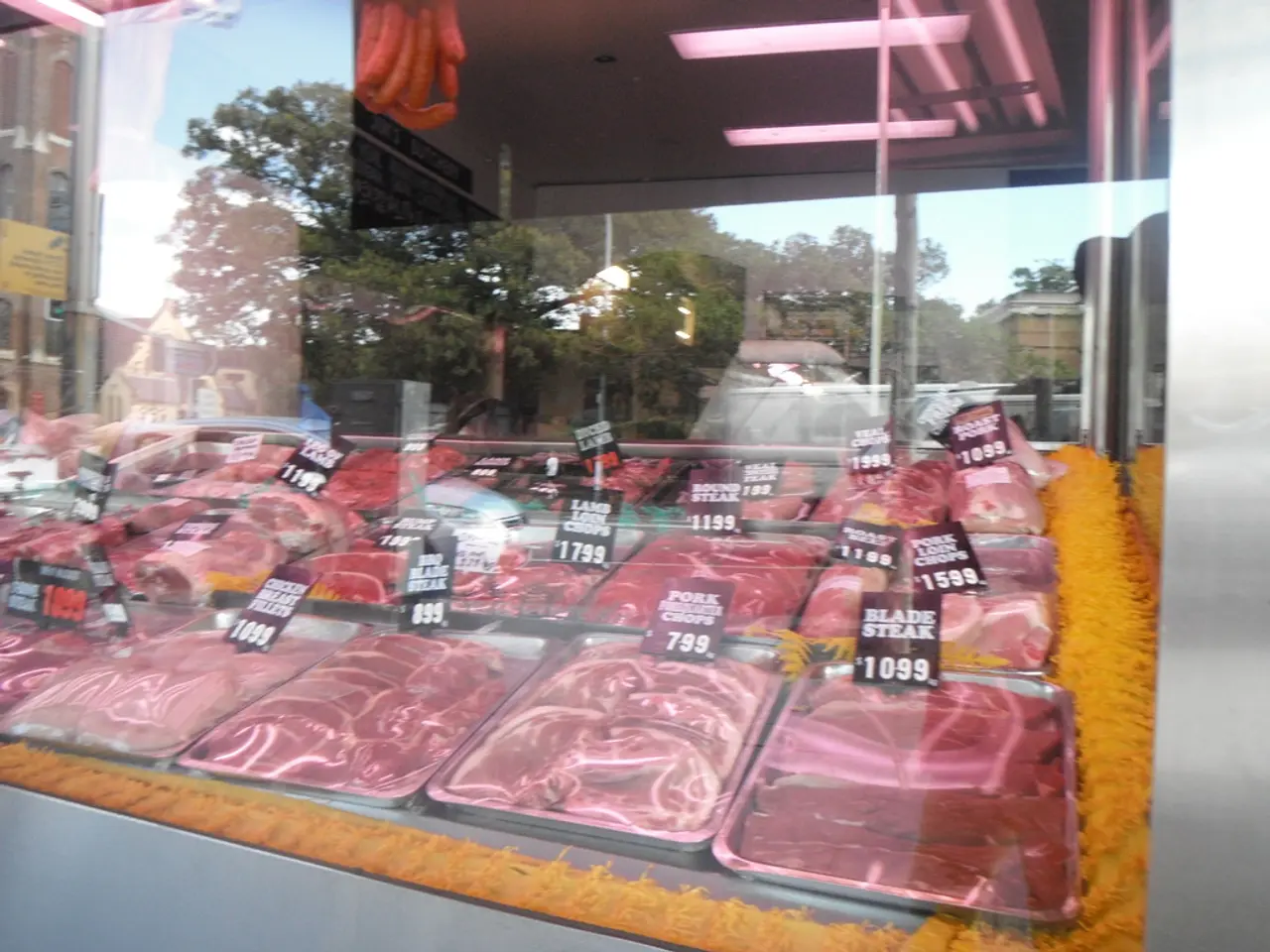Plant-Based Foods Catch Up in Price, Offering Affordable Alternatives to Soaring Meat Costs
Plant-based alternatives are catching up with their animal-based counterparts in price, with some even cheaper per gram. This comes as Brits face rising food costs, with one in two worried about affording food in the next year. Meat prices have soared, up by 52% for beef since 2020, due to supply shortages and high emissions from cattle farming.
Consumers are turning to plant-based options, with Lidl UK seeing a nearly 700% increase in sales of its private-label vegan food. The average price of plant-based alternatives has dropped by 14p, making them more affordable. A third of UK consumers are now looking to reduce their meat and dairy intake due to high prices.
Replacing 20% of weekly meat consumption with vegan alternatives could boost fibre intake and decrease saturated fat. The UK government is urged to create a £30M plant-based innovation fund to support this shift. Meanwhile, Tesco's online store shows meat products are £1.18 more expensive than last year, reflecting the overall trend of rising meat prices.
The price parity and affordability of plant-based burgers, chicken nuggets, mince, and meatballs are driving consumer interest. As meat prices continue to rise, driven by supply shortages and high emissions, plant-based alternatives are emerging as a more sustainable and affordable option for British consumers.
Read also:
- CEO Efe Cakarel of film platform Mubi addresses controversy regarding new investor and Israeli military ties, establishes advisory board and fund to safeguard artists under threat.
- Trump's Policy Shifts Spark Controversy, Pauses Infrastructure Funding
- Germany's Steel Industry Hopes for EU Nod on Subsidized Electricity Prices
- India's Agricultural Storage Infrastructure Booms: Record Projects, Capacity, and Funding





